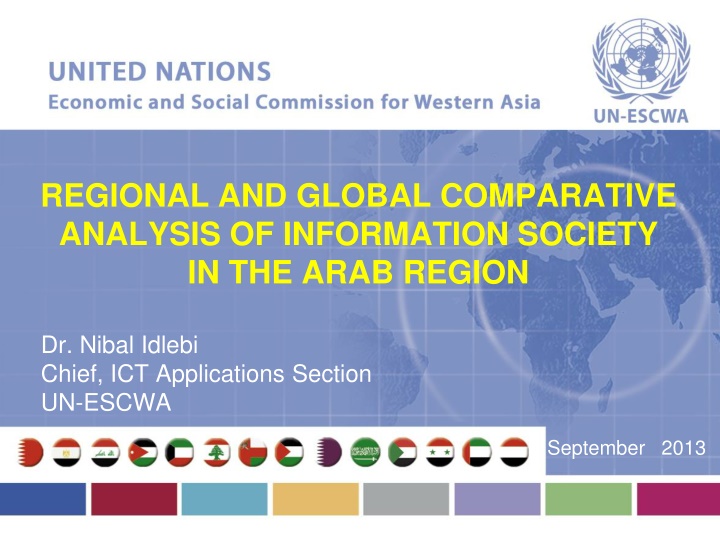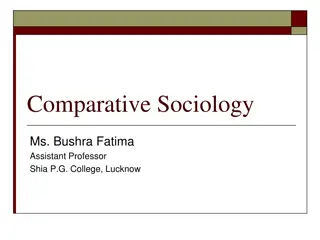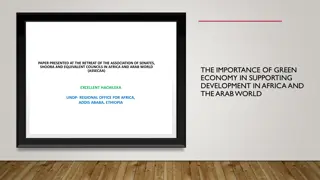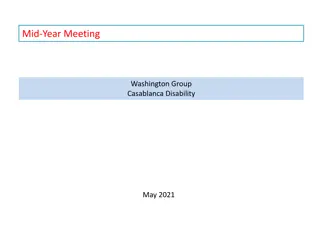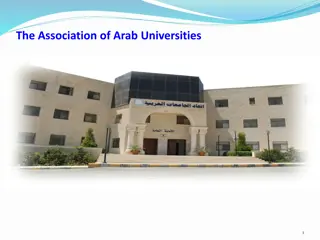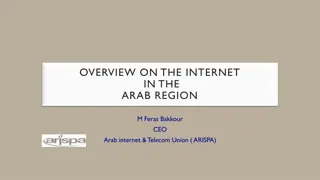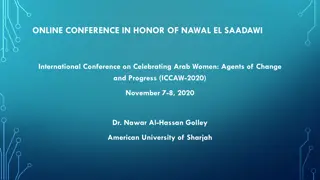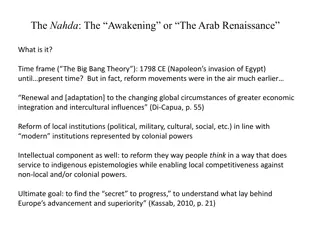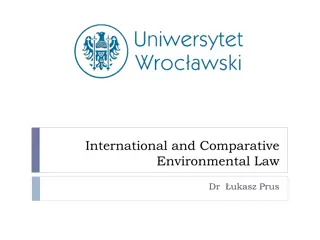REGIONAL AND GLOBAL COMPARATIVE ANALYSIS OF INFORMATION SOCIETY IN THE ARAB REGION
The analysis highlights the progress and challenges in building the information society in the Arab region based on data from 2013. It discusses efforts to bridge the digital divide, increase ICT adoption, improve confidence in ICT use, and address various issues hindering Information Society development.
Download Presentation

Please find below an Image/Link to download the presentation.
The content on the website is provided AS IS for your information and personal use only. It may not be sold, licensed, or shared on other websites without obtaining consent from the author.If you encounter any issues during the download, it is possible that the publisher has removed the file from their server.
You are allowed to download the files provided on this website for personal or commercial use, subject to the condition that they are used lawfully. All files are the property of their respective owners.
The content on the website is provided AS IS for your information and personal use only. It may not be sold, licensed, or shared on other websites without obtaining consent from the author.
E N D
Presentation Transcript
REGIONAL AND GLOBAL COMPARATIVE ANALYSIS OF INFORMATION SOCIETY IN THE ARAB REGION Dr. Nibal Idlebi Chief, ICT Applications Section UN-ESCWA September 2013
The outlook of the IS in the Arab region Main findings based on the Regional Profile of Information Society 2013 The Arab region has taken significant steps towards bridging the digital divide and building the information society. The prominence of ICTs has grown across the region, with dramatic increases in ICT adoption and use rates. Serious efforts for lowering the access to ICT. Building confidence and security in the use of ICTs, and building the ICT sector are still critical issues for building IS in the region. The region has witnessed an increasing adoption and use of ICT applications and e-services, and a greater participation of the Governments and all stakeholders in building the information society. 19 February 2025 2
Challenges of the IS in the Arab region Low ICT readiness and utilization in some member countries Broadband penetration and affordability issues Lack of confidence and security in the use of ICTs Weak, and sometimes incomplete, legal and regulatory ICT framework Freedom of access to information and privacy issues Fragmentation of ICT applications and services for socio- economic development Limited production of substantive digital Arabic content Inadequate production of accurate and timely statistics for ICT measurement and analysis for policy-making and decision support purposes Human skills gap, in ICT related fields. 3
Average of Arab Region in selected areas Average score 2009 1.29 1.93 2.07 2.21 2.21 2.21 2.29 Average score 2011 1.29 1.93 2.21 2.29 2.43 2.43 2.43 Average score 2013 1.75 2.00 2.06 2.12 2.31 2.37 2.50 Information society Components Building confidence and security Building the ICT sector Media ICT applications Enabling environment Access to information and knowledge ICT capacity-building Cultural diversity and local content ICT infrastructure Role of Governments and stakeholders Overall averagea/ 2.21 2.43 2.50 2.13 2.50 2.50 2.64 2.26 2.50 2.50 2.62 2.27 4
Internet, mobile and Wireless broadband penetration rates Internet penetration. Mobile penetration. Wireless Broadband penetration. 5 Source:Compiled by ESCWA based on data from ITU. 2012a.
E-Government Development Index 2010-2012 Source: DESA. 2010. DESA 2012
Percentage of online users by language 2012 Source:Ow.ly, available at: http://ow.ly/i/OGva/original 7
The current context of the Arab region There are divergent economic and social differences which distinguish the GCC sub-region from the rest. Non-GCC unemployment rates, especially among women and youth. countries suffer from poverty and high Most countries in the region face a number of other serious issues including economic and political uncertainty, civil wars, occupation, civil unrest and terrorism. The Arab region faces many challenges for the realization of the information society and the transition to a knowledge based economy. 19 February 2025 8
The IS priorities in the Arab region Countries of the region share and should focus on the following objectives: Increase national capabilities in harnessing ICT for Development (ICT4D) and to enable integration into the global economy Establish a leading national productive ICT sector Address the main challenges for building Information Society and move towards knowledge economy. 19 February 2025 9
Thank you Contact: idlebi@un.org
